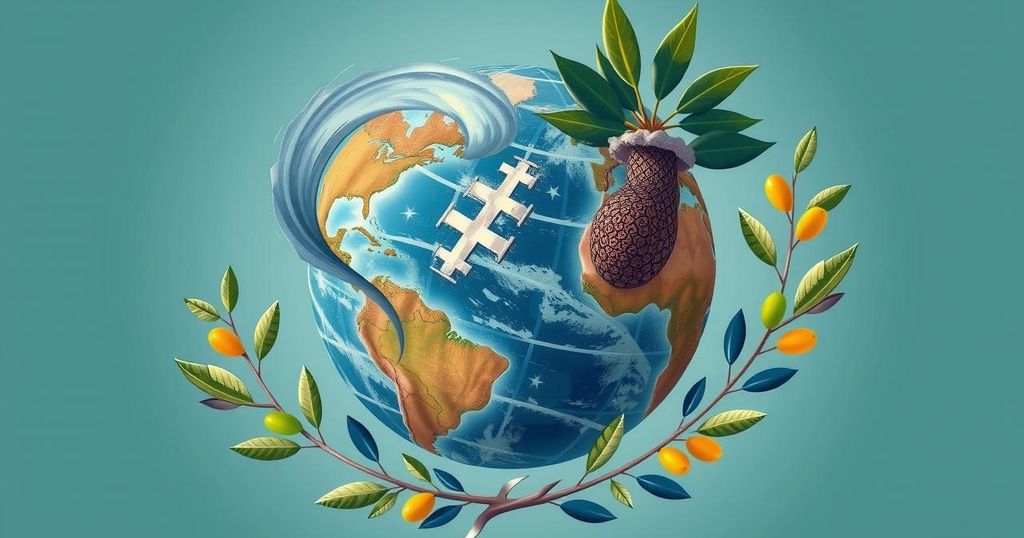The UN Security Council has renewed sanctions against Libya concerning illicit petroleum export, while Mozambique grapples with cyclone recovery and food insecurity. The WHO is mobilizing to address Marburg virus cases in Tanzania, and concerns are growing in Türkiye over the treatment of arrested human rights defenders under counter-terrorism laws.
The United Nations Security Council has extended the mandate of the Panel of Experts concerning the sanctions on Libya, which includes measures against the illicit export of petroleum. This resolution, passed with 14 votes in favor and one abstention from Russia, establishes new criteria to target individuals involved in the illegal oil trade, building on the sanctions imposed after the fall of Muammar Gaddafi in 2011.
In Mozambique, recovery efforts continue as the UN assists communities affected by two recent tropical cyclones. Cyclone Chido struck Cabo Delgado province, resulting in significant casualties and destruction. Over 400,000 residents have been impacted, and a second storm, Dikeledi, has exacerbated the situation, raising food security concerns for approximately three million citizens.
In response to reported cases of the Marburg virus in Tanzania, the World Health Organization has mobilized resources to aid the government in investigating these occurrences. WHO emphasizes the importance of swift actions to control the outbreak, reflecting on a previous outbreak earlier in the year that was successfully managed.
The UN’s Special Rapporteur on human rights defenders has expressed serious concerns over the arbitrary detention of nine Turkish lawyers and human rights advocates, alleging misuse of counter-terrorism laws to silence dissent. Despite efforts to address these issues, there has been no improvement in their situation, prompting calls for more accountability and fair trial standards.
The UN Security Council regularly reviews and renews sanctions against Libya, focusing particularly on illicit trade and the situation following the fall of its former leader, Muammar Gaddafi. Meanwhile, Mozambique faces ongoing challenges from natural disasters, emphasizing the importance of international aid in disaster recovery and food security. In Tanzania, the emergence of the Marburg virus raises public health concerns and highlights the importance of timely responses from health organizations. Additionally, the situation concerning human rights in Türkiye serves as a reminder of the challenges faced by defenders under stringent counter-terrorism laws.
The Security Council’s actions reflect ongoing challenges in Libya, emphasizing the need for international oversight in illicit oil trade. Mozambique continues to struggle with the aftermath of severe cyclones, necessitating urgent humanitarian support. The WHO’s involvement in Tanzania underscores the critical response needed for emerging health threats like the Marburg virus. Finally, concerns regarding human rights in Türkiye highlight the ongoing struggle for justice and protection of defenders.
Original Source: news.un.org






